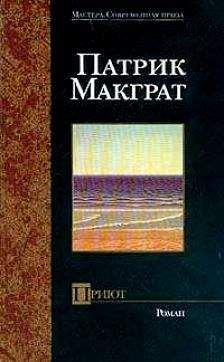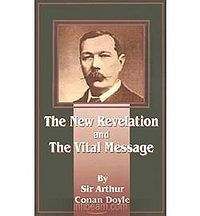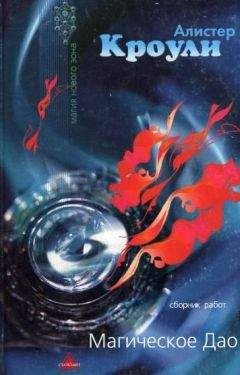Алистер Макграт - Кто изобрел Вселенную? Страсти по божественной частице в адронном коллайдере и другие истории о науке, вере и сотворении мира
186
Stauffer (ed), Charles Darwin’s Natural Selection, p. 224.
187
Чарльз Кингсли – Чарльзу Дарвину, 18 ноября 1859 года, «Life and Letters of Charles Darwin», vol. 2, p. 287. Длительную и очень важную переписку по вопросам науки и религии вел с Кингсли и Томас Гексли: Paul White, «Thomas Huxley: Making the “Man of Science”», Cambridge: Cambridge University Press, 2003, pp. 114–21.
188
Charles Kingsley, «The Natural Theology of the Future», в «Westminster Sermons», London: Macmillan, 1874, p. xxv.
189
John R. Lucas, «Wilberforce and Huxley: A Legendary Encounter», «Historical Journal» 22, 1979, pp. 313–30; J. Vernon Jensen, «Return to the Wilberforce-Huxley Debate», «British Journal for the History of Science» 21, no. 2, 1988, pp. 161–79; John Hedley Brooke, «The Wilberforce-Huxley Debate: Why Did It Happen?», «Science and Christian Belief, 13, 2001, pp. 127–41; Frank A. J. L. James, «An “Open Clash between Science and the Church”? Wilberforce, Huxley and Hooker on Darwin at the British Association, Oxford, 1860», в кн. «Science and Beliefs: From Natural Philosophy to Natural Science», ed. David M. Knight and Matthew D. Eddy, Aldershot: Ashgate, 2005, pp. 171–93.
190
«The Quarterly Review» 108, July 1860, pp. 225–64.
191
Jensen, «Return to the Wilberforce-Huxley Debate», p. 176.
192
Чарльз Дарвин – Джозефу Хукеру, 20 (?) июля 1860 г., «Life and Letters of Charles Darwin», vol. 2, p. 234.
193
Matthew Stanley, «Huxley’s Church and Maxwell’s Demon: From Theistic Science to Naturalistic Science», Chicago: University of Chicago Press, 2015.
194
Frederick Temple, «The Present Relations of Science and Religion: A Sermon», Oxford: Parker, 1860, p. 15.
195
О роли Темпла в формировании викторианского отношения к эволюции см. Peter Hinchliff, «Frederick Ternple, Archbishop of Canterbury», Oxford: Oxford University Press, 1998, pp. 166–93.
196
Frederick Temple, «The Relations hetween Religion and Science», London: Macmillan, 1885, p. 115.
197
Charles Darwin, «The Descent of Man», 2 vols, London: John Murray, 1871, vol. 1, p. 168.
198
David J. Galton and Clare J. Galton, «Francis Galton and Eugenics Today», «Journal of Medical Ethics» 24, 1998, pp. 99–105.
199
Elazar Barkan, «The Retreat of Scientific Racism: Changing Concepts of Race in Britain and the United States hetween the World Wars», Cambridge: Cambridge University Press, 1992, p. 242.
200
Marie Carmichael Stopes, «Radiant Motherhood: A Book for Those Who Are Creating the Future», London: Putnam’s Sons, 1920, p. 223.
201
Ibid., p. 225.
202
Ibid., p. 220.
203
См. Gillian Beer, «Darwin’s Plots: Evolutionary Narrative in Darwin, George Eliot and Nineteenth-Century Fiction», Cambridge: Cambridge University Press, 2000; Gowan Dawson, «Darwin, Literature and Victorian Respectability», Cambridge: Cambridge University Press, 2007.
204
Darwin, «The Descent of Man», vol. 2, p. 404.
205
Ibid., p. 405.
206
David N. Livingstone and Mark A. Noll, «B. B. Warfield (1851–1921): A Biblical Inerrantist as Evolutionist», «Isis» 91, 2000, pp. 283–304.
207
См. две важные статьи William E. Carroll: «Creation, Evolution, and Thomas Aquinas, «Revue des Questions Scientifiques» 171, 2000, pp. 319–47; «At the Mercy of Chance? Evolution and the Catholic Tradition», «Revue des Questions Scientifiques» 177, 2006, pp. 179–204.
208
Точка зрения иудаизма на эти вопросы отражена в книге Jonathan Sacks, «The Great Partnership: God, Science and the Search for Meaning», London: Hodder & Stoughton, 2011, pp. 209–32.
209
James Barr, «Why the World Was Created in 4004 bc: Archbishop Ussher and Biblical Chronology», «Bulletin of the John Rylands University» 67, 1984–5, pp. 575–608.
210
William R. Brice, «Bishop Ussher, John Lightfoot and the Age of Creation», «Journal of Geological Education» 30, 1982, pp. 18–24.
211
См., например, Stephen Barton, David Wilkinson (eds), «Reading Genesis After Darwin», Oxford: Oxford University Press, 2009; William Brown, «The Seven Pillars of Creation», New York: Oxford University Press, 2010.
212
Keith A. Francis, «Nineteenth-Century British Sermons on Evolution and The Origin of Species», «A New History of the Sermon: The Nineteenth Century», ed. Robert Ellison, Leiden: Brill, 2010, pp. 269–308.
213
Авторитетный труд по этому вопросу – Ronald L. Numbers, «The Creationists: The Evolution of Scientific Creationism», New York: Knopf, 1992.
214
Подробнее см. Ernan McMullin, «Evolution and Creation», Notre Dame, IN: University of Notre Dame Press, 1985, pp. 1–58; Alister E. McGrath, «Darwinism and the Divine», Oxford: Wiley-Blackwell, 2011, pp. 222–30.
215
Среди лучших особенно выделяются две: Denis Alexander, «Creation or Evolution: Do We Have To Choose?» 2nd ed., Oxford: Monarch Books, 2014; Francis S. Collins, «The Language of God: A Scientist Presents Evidence for Belief», New York: Free Press, 2006. См. также Michael Ruse, «Can a Darwinian Be a Christian? The Relationship between Science and Religion», Cambridge: Cambridge University Press, 2001.
216
«Soul has Weight, Physician Thinks», New York Times, 11 марта 1907 года.
217
Andreas Hüttemann and Alan C. Love, «Aspects of Reductive Explanation in Biological Science: Intrinsicality, Fundamentality, and Temporality», «British Journal of Philosophy of Science» 62, no. 3, 2011, pp. 519–49.
218
Francis Crick, «The Astonishing Hypothesis: The Scientific Search for the Soul», London: Simon & Schuster, 1994, pp. 3, 11.
219
William R. Stoeger, Nancey C. Murphy (eds), «Evolution and Emergence: Systems, Organisms, Persons», Oxford: Oxford University Press, 2007.
220
Desmond Morris, «The Naked Ape: A Zoologists Study of the Human Animal», London: Jonathan Cape, 1967.
221
См., например, Jonathan Marks, «The Biological Myth of Human Evolution», «Contemporary Social Science» 7, no. 2, 2012, pp. 139–65. Маркс подчеркивает, что «культуру» следует понимать не просто как «усвоенное поведение», а как «символическую, языковую и историческую среду».
222
Разбор точки зрения Докинза см. в книге Alister E. McGrath, «Dawkins’ God: From The Selfish Gene to The God Delusion», 2nd ed., Oxford: Wiley-Blackwell, 2015.
223
Richard Dawkins, «The Selfish Gene», 2nd ed., Oxford: Oxford University Press, 1989, p. 21.
224
Краткий обзор см. в работе Uwe Sauer, Matthias Heinemann and Nicola Zamboni, «Genetics: Getting Closer to the Whole Picture», «Science» 316, no. 5824, 2007, pp. 550–1. Точка зрения Нобла в последние годы изложена в статье Denis Noble, «A Theory of Biological Relativity: No Privileged Level of Causation», «Interface Focus» 2, no. 1, 2011, pp. 55–64.
225
Denis Noble, «The Music of Life: Biology Beyond the Genome», Oxford: Oxford University Press, 2006, pp. 11–15, цит. на p. 13.
226
Сейчас Нобл склоняется к мысли, что аргументом против Докинза может стать кумулятивный вес данных: Denis Noble, «Neo-Darwinism, the Modern Synthesis and Selfish Genes: Are They of Use in Physiology?», «Journal of Physiology» 589, no. 5, 2011, pp. 1007–15.
227
C. S. Lewis, «The Voyage of the Dawn Treader», London: HarperCollins, 2009, p. 215.
228
Прекрасное описание подобных представлений см. в книге Robert B. Lauglilin, «A Different Universe: Reinventing Physics from the Bottom Down», New York: Basic Books, 2005.
229
Plato, «Cratylus», 400 c. О культурно-философском фоне этого высказывания см. John P. Wright and Paul Potter (eds), «Psyche and Soma: Physicians and Metaphysicians on the Mind-Body Problem from Antiquity to Enlightenment», Oxford: Clarendon Press, 2000.
230
C. F. Fowler, «Descartes on the Human Soul», Boston: Kluwer Academic Publishers, 1999, pp. 67–160. В дальнейшем Декарт оформил эту идею как дуализм разума и тела.
231
H. Wheeler Robinson, «Inspiration and Revelation in the Old Testament», Oxford: Clarendon Press, 1946, p. 70.
232
James D. G. Dunn, «The Theology of Paul the Apostle», Grand Rapids, MI: Eerdmans, 1998, pp. 51–78.
233
Warren S. Brown, Nancey C. Murphy and H. Newton Malony (eds), «Whatever Happened to the Soul? Scientific and Theological Portraits of Human Nature», Minneapolis: Fortress Press, 1998.
234
См., например, Charles C. Conti, «Metaphysical Personalism: An Analysis of Austin Farrer’s Metaphysics of Theism», Oxford: Clarendon Press, 1995.
235
Augustine of Hippo, «Confessions», I.1.i.
236
Лучшее исследование по этой теме – Lawrence Feingold, «The Natural Desire to See God According to St. Thomas and His Interpreters», Rome: Apollinare Studi, 2001.
237
Alister E. McGrath, «Arrows of Joy: Lewis’s Argument from Desire», в кн. «The Intellectual World of C. S. Lewis», Oxford: Wiley-Blackwell, 2013, pp. 105–28.
238
Paul Bloom, «Religion Is Natural», «Developmental Science» 10, no. 1, 2007, pp. 147–51.
239
Brent Nongbri, «Before Religion: A History of a Modern Concept», New Haven, CT: Yale University Press, 2013, pp. 15–24.
240
См., например, Peter Harrison, «“Religion” and the Religions in the English Enlightenment», Cambridge: Cambridge University Press,
1990.
241
Различные точки зрения по этому вопросу см. в Pascal Boyer, «Religion Explained: The Evolutionary Origins of Religious Thought», New York: Basic Books, 2001; Scott Atran, «In Gods We Trust: The Evolutionary Landscape of Religion», Oxford: Oxford University Press, 2002; Justin L. Barrett, «Why Would Anyone Believe in God?» Lanham, MD: AltaMira Press, 2004.
242
Robert N. McCauley, «Why Religion Is Natural and Science Is Not», New York: Oxford University Press, 2011, pp. 83–143.




